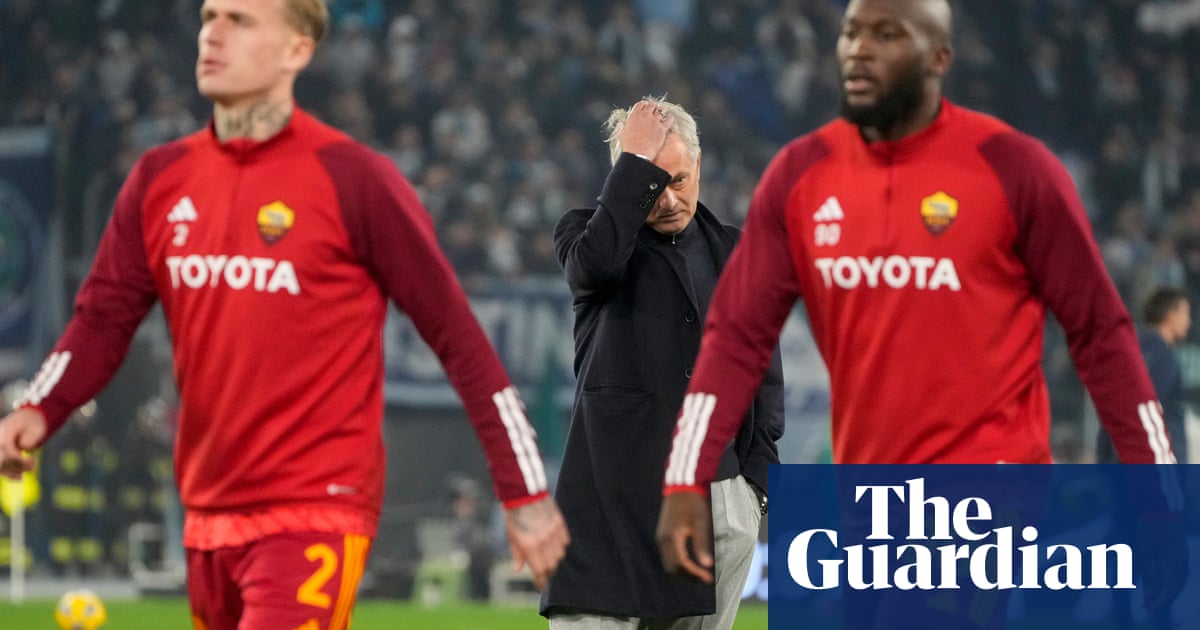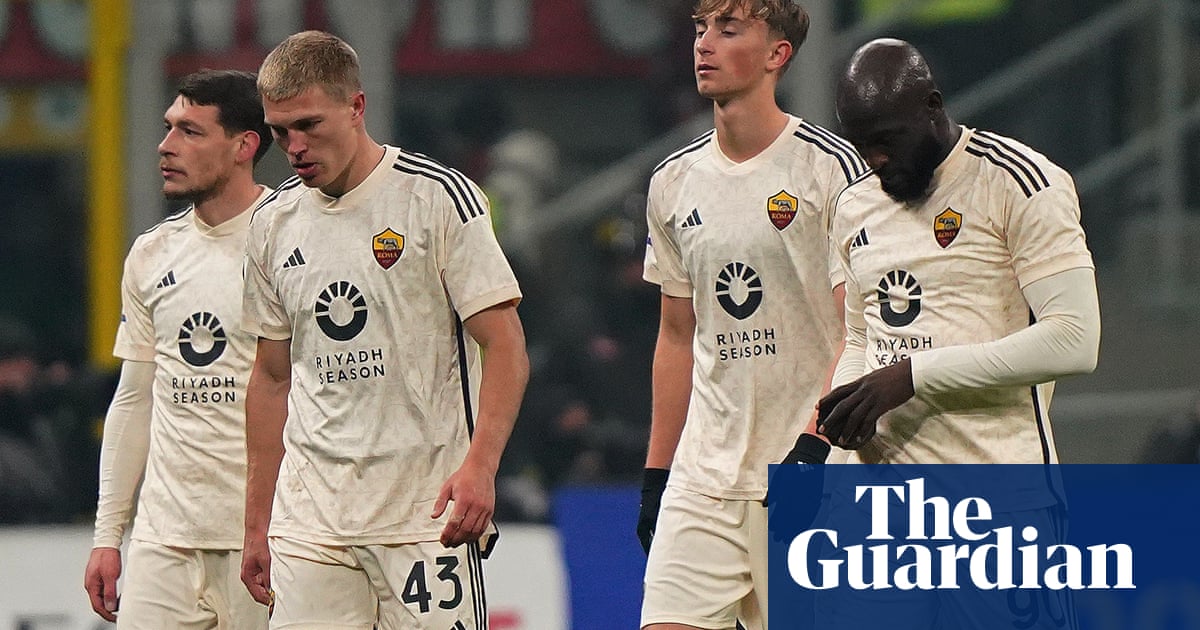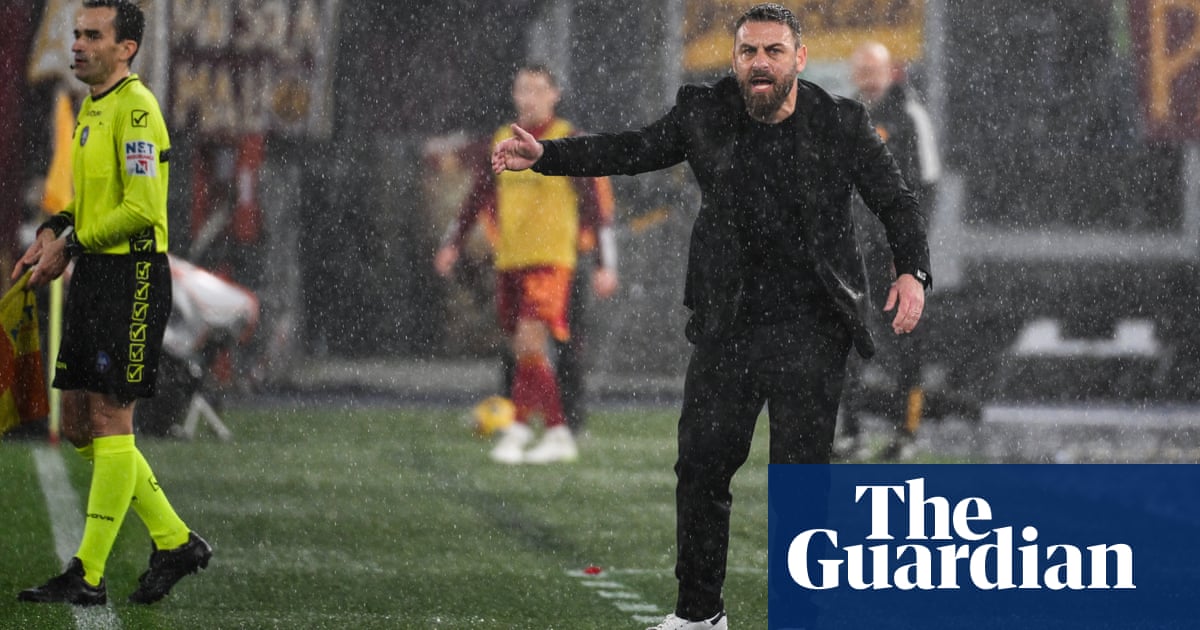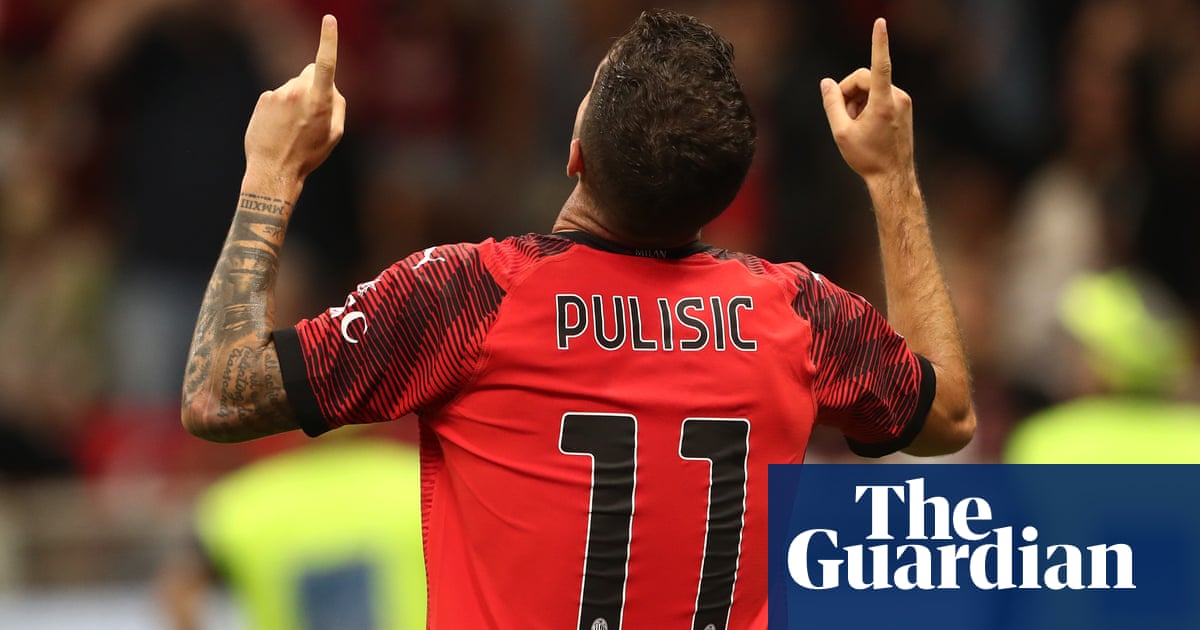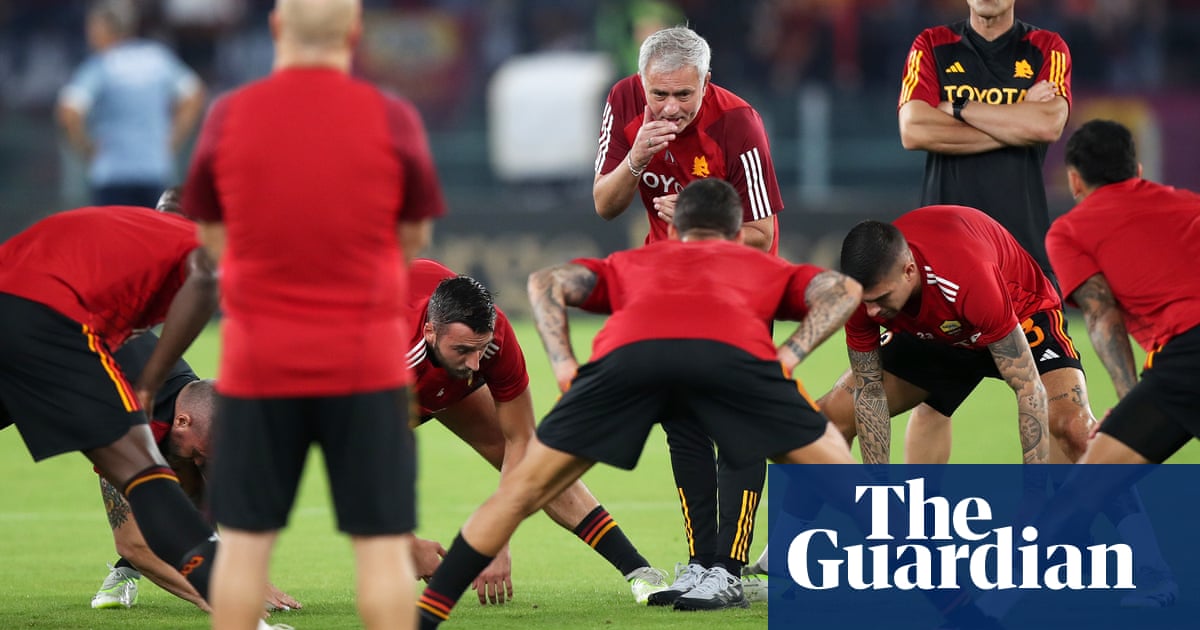
José Mourinho claims not to read his own press, but other people do it for him. “During the holidays, I had the biggest, most important, craziest offer of work that any manager has had in the history of football,” he told reporters at a press conference on Saturday. “I turned that down because I had given my word to the players, the ownership and the fans [at Roma].
“Three months later, it seems that I am the problem? I can’t accept that. I don’t read [the news], I don’t listen, I don’t watch TV. But I have friends, I have players, collaborators, other people who make sure all this chatter reaches me even if I don’t want them to. And I don’t accept it. I don’t accept it because it’s not true. I am not the problem. In football, as in practically every part of life, things are multi-factorial.”
The offer he rejected was reported to have come from Al-Hilal in Saudi Arabia, and to have been worth €30m a season after tax. Taking it would have meant leaving on a sad note, having lost the Europa League final to Sevilla, but fans would certainly have remembered his chapter fondly for their triumph in the inaugural Europa Conference League one year before.
Instead, Mourinho’s reward for staying was to endure his worst-ever start to a league season. Roma collected just five points from their opening six games. On Thursday, they suffered a humiliating 4-1 defeat to newlypromoted Genoa.
Roma were in the midst of a defensive injury crisis. Diego Llorente was forced out of that game in the 24th minute with Chris Smalling and Marash Kumbulla already missing. Bryan Cristante, the team’s midfield engine, had to fill in at centre-back. With summer signing Renato Sanches also absent, that left them short of options further up the pitch.
A multi-factorial problem indeed. Still these results felt hard to justify. Mourinho reminds us often that his team lacks the resources of title-chasing rivals, but how does that explain dropping points in quick succession to Genoa, Torino, Verona and Salernitana?
Despite recouping more money than they spent in transfer fees last summer – the sales of Roger Ibañez to Al-Ahli and Justin Kluivert to Bournemouth helping them stay on track to meet the terms of their Financial Fair Play Settlement Agreement with Uefa – Roma still managed to add players with international and Champions League experience: Sanches, Leandro Paredes, Evan Ndicka and Houssem Aouar.
The headline was Romelu Lukaku, signed on a one-year loan from Chelsea at the very end of August. His arrival was met almost as enthusiastically as the capture of Paulo Dybala one year before, 5,000 fans waiting to greet him at Ciampino airport – in some cases clambering on strangers’ cars just to get a view. A mural appeared in the Monti neighbourhood before he had even kicked a ball.
Lukaku was quick to integrate, scoring in consecutive matches against Empoli, FC Sherriff and Torino. So why did Roma’s prospects still look so bleak? Those defensive injuries were one part of the equation, as was the ineffectiveness of Rui Patrício in goal. After six games, he was the only starting keeper in Serie A to have saved less than half the shots on target he had faced.
Only two teams in the division, Empoli and Sassuolo, had conceded more goals. Was Mourinho too rigid in sticking with a back three despite his injury crisis? Were his team simply suffering from a familiar third-season syndrome?
Mourinho was fired during year three of his second stint at Chelsea, and again in his next job at Manchester United. Even his first chapter with the Blues had followed the same broad pattern, two title wins giving way to a second-place finish then a parting of ways early in year four. His third season at Real Madrid was his last and least successful, with only a Supercopa to show for it and a win percentage that dropped from the high 70s down to the low 60s.
After the loss to Genoa, Roma’s players were chastised by travelling supporters. Journalists wondered whether Mourinho, too, might lose some of the unwavering backing he has received since arriving in Rome. When his team returned home to face Frosinone on Sunday night, however, they found the Stadio Olimpico filled up with more than 62,000 fans.
A handful of tickets were unsold – making this, officially, the end of a run of 36 consecutive full houses – but nobody present would have noticed. The crowd continued to back Roma even as they endured another wobbly start. Marvin Çuni really should have given Frosinone the lead in the 18th minute, when Patricio badly misjudged the angles rushing off his line. The striker was left with an open goal, albeit from an acute angle, but could only find the side netting.
Instead, Lukaku put Roma in front in the 21st minute. It was a goal we have seen him score countless times before, punishing a defender for getting too close as he shifted the ball back across his body and drilled it left-footed into the bottom of the net.
If Roma’s supporters hoped that early strike might allow their team to settle into a more confident rhythm, they would be disappointed. Çuni went clean through for a second time moments later, but fired off target again. Despite some occasionally slick one-touch combinations, Roma never established any real sense of control until Dybala’s free-kick found Lorenzo Pellegrini at the back post in the 83rd minute, and the Italian side-footed home for 2-0.
Sometimes the important thing is just to win a game of football. “This was not the day to play a marvellous match,” said Mourinho in his post-game press conference. “That would have been impossible, we did not have the freshness for it – neither physically nor mentally.”
The exhaustion was visible in him as he declined to put in an earpiece to speak directly with the pundits in the Dazn studio at full-time, saying: “I’m tired and we have to travel.” To his credit, Mourinho still took time to give thoughtful answers to questions at his subsequent press conference, reflecting among other things on the difficult transition for Ndicka coming from the Bundesliga to Serie A.
“He played in a back three there, but it was a completely different three, with different underlying principles,” said Mourinho. “I will continue to say, and maybe not everyone agrees with me, but Italian football is the most tactical. I see teams in other leagues with great players and those great players can make a team great on their own.”
If that is not the case in Serie A, then the natural conclusion must be that it falls instead to each manager to build the structures that allow players to express their potential. Roma’s early-season struggles are not all down to Mourinho. And yet, having chosen to turn down the Saudi money and stay this summer, it is still his job to fix them.









